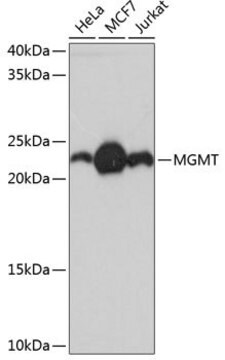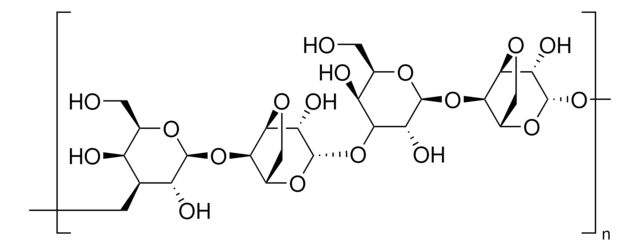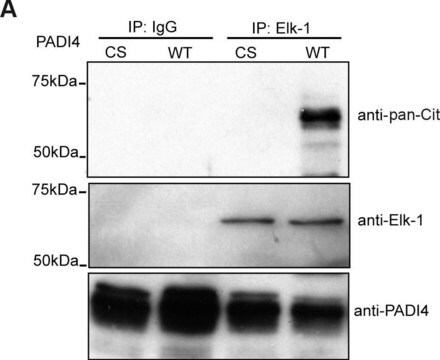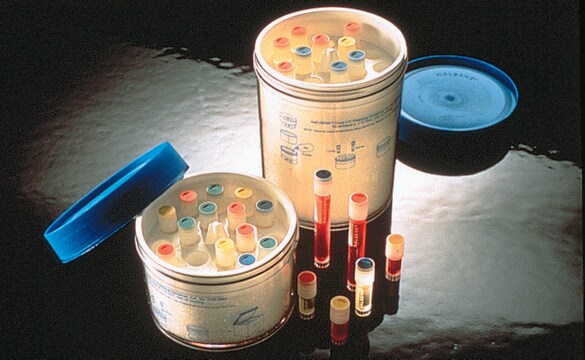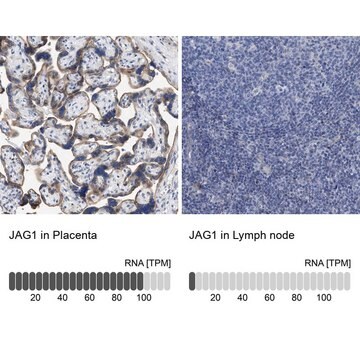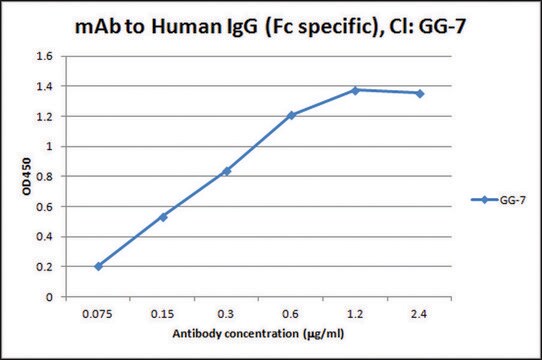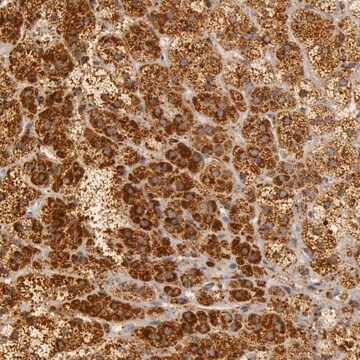C0730
Anti-CD137 antibody produced in goat
affinity isolated antibody, lyophilized powder
Sinonimo/i:
Anti-4-1BB
About This Item
Prodotti consigliati
Origine biologica
goat
Coniugato
unconjugated
Forma dell’anticorpo
affinity isolated antibody
Tipo di anticorpo
primary antibodies
Clone
polyclonal
Forma fisica
lyophilized powder
Reattività contro le specie
human
tecniche
capture ELISA: 0.2-0.8 μg/mL
flow cytometry: 2.5 μg using 106 human T cells treated with PHA
immunocytochemistry: 5-15 μg/mL
western blot: 0.1 μg/mL
Impurezze
<0.10 EU/μg endotoxin
N° accesso UniProt
Temperatura di conservazione
−20°C
modifica post-traduzionali bersaglio
unmodified
Informazioni sul gene
human ... TNFRSF9(3604)
Descrizione generale
Immunogeno
Applicazioni
- Agonist Activity: Measured by its ability to costimulate IFNg secretion by human T cells in the presence of anti-CD3. The ED50 for this effect is typically 5-20μg/mL.
- ELISA capture: It can be used as a capturing reagent in a human 4-1BB sandwich immunoassay in combination with biotinylated human 4-1BB detection antibody and recombinant human 4-1BB as the standard. The suggested coating concentration range is 0.2-0.8μg/ml. The recommended concentration of the detection antibody is 0.1-0.4μg/mL.
- Flow cytometry: 2.5μg/106 cells using Human T cells treated with PHA (phytohemagglutinin).
- Immunoblotting: A working concentration of 0.1μg/ml was determined using recombinant human CD137.
- Immunocytochemistry: 5-15μg/mL using immersion fixed human peripheral blood mononuclear cells.
Azioni biochim/fisiol
Stato fisico
Ricostituzione
Esclusione di responsabilità
Non trovi il prodotto giusto?
Prova il nostro Motore di ricerca dei prodotti.
Codice della classe di stoccaggio
10 - Combustible liquids
Classe di pericolosità dell'acqua (WGK)
WGK 1
Punto d’infiammabilità (°F)
Not applicable
Punto d’infiammabilità (°C)
Not applicable
Certificati d'analisi (COA)
Cerca il Certificati d'analisi (COA) digitando il numero di lotto/batch corrispondente. I numeri di lotto o di batch sono stampati sull'etichetta dei prodotti dopo la parola ‘Lotto’ o ‘Batch’.
Possiedi già questo prodotto?
I documenti relativi ai prodotti acquistati recentemente sono disponibili nell’Archivio dei documenti.
Il team dei nostri ricercatori vanta grande esperienza in tutte le aree della ricerca quali Life Science, scienza dei materiali, sintesi chimica, cromatografia, discipline analitiche, ecc..
Contatta l'Assistenza Tecnica.